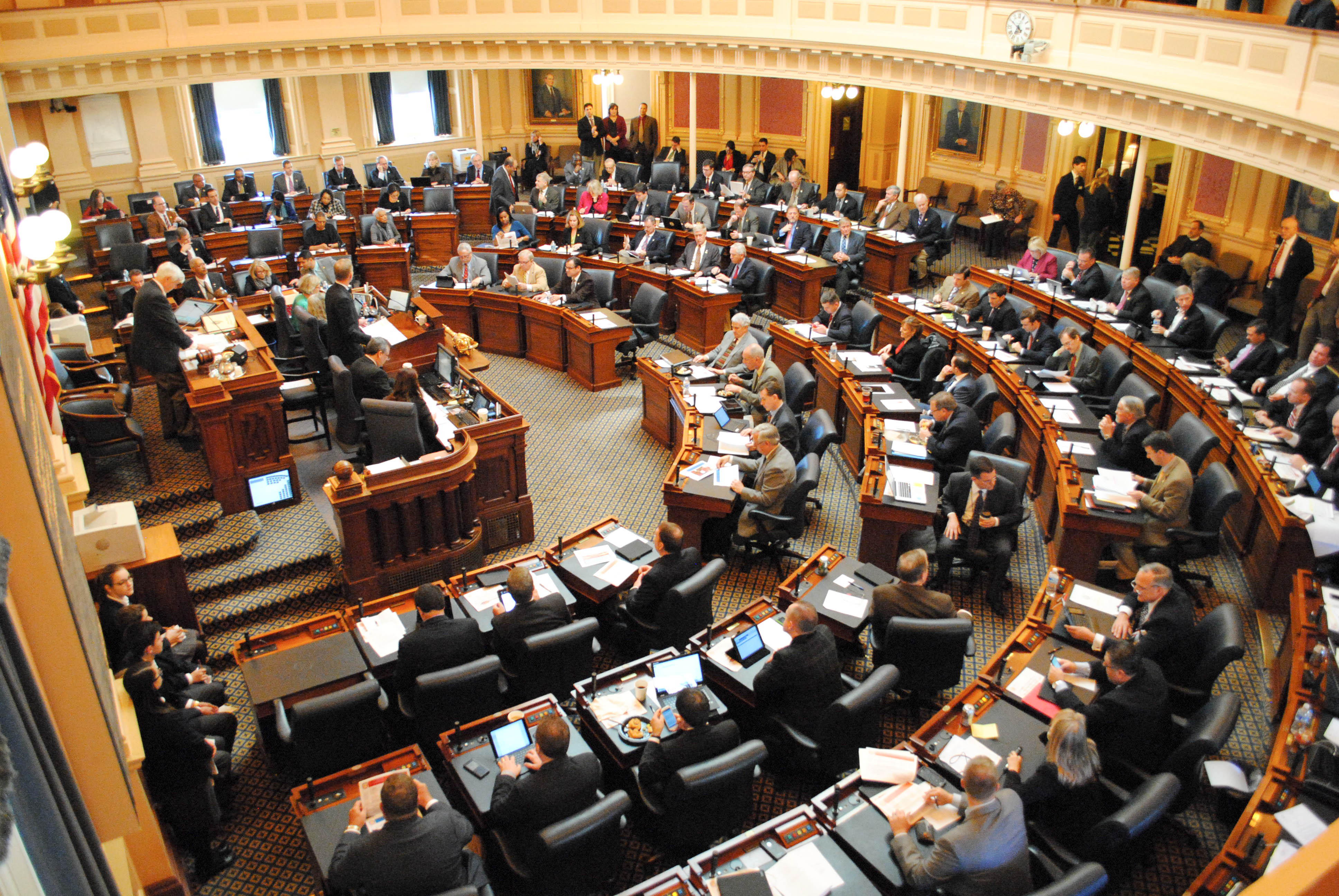Speaker of the Virginia House of Delegates Kirk Cox (R-Colonial Heights) has official filed a formal appeal to the U.S. Supreme Court over the ruling handed down by a district court declaring that the legislative district map drawn by House Republicans in 2011 was unconstitutional on the grounds of racial gerrymandering. Last week, the House reconvened for a special session to re-draw the legislative map, with Democrats forwarding a plan that sparked bipartisan criticism.
On Tuesday, Cox filed in his capacity as Intervenor-Defendant in Bethune Hill v. Virginia State Board of Elections (2017), after the District Court for the Eastern District of Virginia reversed its previous opinion, finding that African-American voters were packed into majority-minority districts in 11 House districts in the Richmond metro and Hampton Roads areas.
Via a press release from the office of the Speaker of the House, the appeal’s Jurisdictional Statement presents six questions to the Court for review. Moreover, Cox argues that the previous court ruling committed a clear legal error, with Republican explaining that race was not the predominant factor in the drawing of the 11 challenged districts.
The appeal cites the Voting Rights Act of 1965, wherein the challenged districts are narrowly tailored, thus constitutional.
For race to be considered a predominate provision of a redistricting plan under the Voting Rights Act, the jurisdiction in question must prioritize racial considerations over traditional redistricting principles that include compactness, contiguity, and a respect for “political subdivisions and communities defined by actual shared interests.” Redistricting plans are upheld as constitutional only if such a plan is narrowly tailored to advance a compelling state interest.
The Speaker explained that in the court’s previous decision, they “considered only racial explanations, and transparently attempted to shield its one-sided conclusions from review by labeling them findings of fact and credibility.”
“That is paradigmatic clear error,” he said. “This case is about coopting the federal courts to reverse that informed political decision and hand a political victory to the small minority of delegates who had differing political goals.”
In the 416-page appeal, the questions asked are:
1. If the district court “conducted a proper ‘holistic’ analysis of the majority-minority Virginia House of Delegates districts” under the prior decision in the 2017 case. Cox claims that the court “ignored a host of evidence” that included an “overwhelming majority of district lines, which were carried over unchanged from the prior map,” the exact “geographic location of population disparities, which imposed severe redistricting constraints and directly impacted which voters were moved into and out of the majority-minority districts,” and “the degree of constraint the House’s Voting Rights Act compliance goals imposed in implementation, which was minimal.”
2. Whether the jurisprudence in predominance test set forth by the decision in Bethune-Hill “is satisfied merely by a lengthy description of ordinary Voting Rights Act compliance measures.”
3. Whether the court “erred in relying on expert analysis it previously rejected as unreliable and irrelevant and expert analysis that lacked any objective or coherent methodology.”
4. Whether the court “committed clear error in ignoring the entirety of the House’s evidentiary presentation under the guise of credibility determinations unsupported by the record and predicated on expert testimony that should not have been credited or even admitted.”
5. Whether the “choice to draw 11 ‘safe’ majority-minority districts of around or above 55% black voting-age population (BVAP) was narrowly tailored in light of discretion the Voting Rights Act afforded covered jurisdictions to ‘choose to create a certain number of ‘safe’ districts, in which it is highly likely that minority voters will be able to elect the candidate of their choice,'” with Cox citing Georgia v. Ashcroft (2003), “or the requirement the Voting Rights Act, as amended, imposed on covered jurisdictions ‘to prove the absence of racially polarized voting’ to justify BVAP reductions towards or below 50% BVAP.”
6. Whether the district court made a mistake in ignoring the “district-specific evidence before the House in 2011 justifying safe districts at or above 55% BVAP.”
“While we are naturally disappointed the [district] court denied our request for a stay, we will continue to pursue all legal remedies available to uphold the Constitutional redistricting plan adopted in 2011 by an overwhelming bipartisan majority, including the House Legislative Black Caucus and then-Senator Northam,” said Speaker Cox.
He added, “Our appeal seeks both to overturn the district court’s legal errors and establish clarity in this difficult and confusing area of law.”






